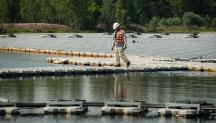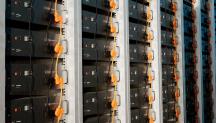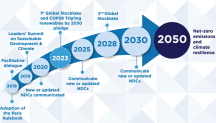

IRENA Side Event: Government Policies and Flexible Financing Needed to Scale-Up Renewables
Newsletter
In this latest round of climate negotiations, two things have become clear:
- There is an urgent need for rapid climate action to reduce global emissions.
- Phasing out fossil-fuels and scaling up renewable energy is the quickest, most realistic, most cost-effective way to achieve this.
What is not yet so clear is how best to achieve this scale-up of renewables in the world energy mix. Today, IRENA coordinated a side event with various public and private sector representatives to discuss this question, share success stories of renewable energy adoption, and discuss solutions.
IRENA Director-General Adnan Amin began the dialogue by providing some context based on IRENA research findings:
- ECONOMIC: Renewables are now the most cost-competitive source of power in many parts of the world. Investment in new renewable capacity has exceeded investment in new fossil-based power generation capacity for three years running.
- SOCIAL: The renewable energy sector employed 6.5 million people in 2013. Renewables brought power to 13 billion people off the grid in Bangladesh. 7 million premature deaths are linked to air pollution annually.
- ENVIRONMENTAL: Renewables are 250 times less carbon intensive than coal. Doubling the share of renewables in the world’s energy mix would reduce emissions enough to avoid the worst effects of climate change.
Two key areas that must be addressed in order to scale-up renewables are policy and financing. Representatives from Sweden and the United Arab Emirates discussed how government policies in their countries have enabled the implementation of renewables.
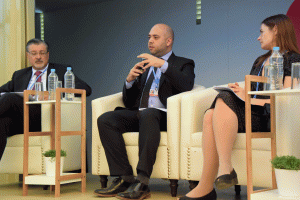
“Sweden has the ambition to have a climate neutral society by 2050 and we are on track to meet this goal. Thanks to national policies, Sweden has achieved a 23% emission reduction since 1990 and our GDP has risen 60% during that same period. This proves that renewables make economic sense. Our dependency on fossil fuel has been reduced by half, and we are now one of the most renewable energy-dependent economies.” - Katja Awiti, Deputy Director General, Climate Department, Ministry of Climate and Environment Sweden
“The United Arab Emirates recognized early that our economy was based on one thing, oil and gas, so we needed to diversify. Renewable energy projects now make economic sense, specifically solar for our region. If renewables work in the UAE, they can work anywhere in the world.” - Majid Al Suwaidi, Chief Climate Change Negotiator, UAE
Representatives from the Climate Investment Funds and E3G further discussed the necessity of concessional financing in scaling up renewables. Concessional financing offers flexible or lenient terms for repayment, usually at lower than market interest rates.
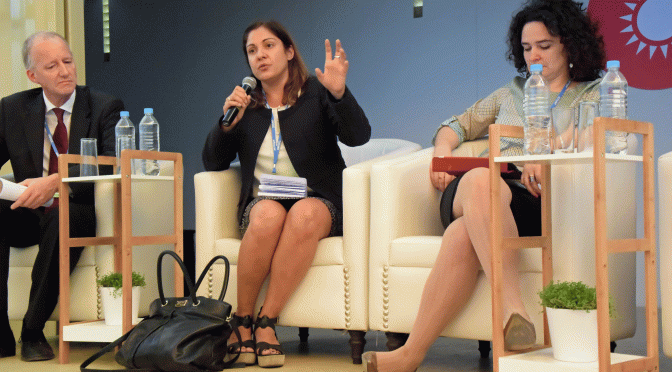
“This event is discussing a topic at the heart of what is going here at COP. According to the IPCC, 65% of our carbon budget has already been used. We need to rapidly scale up renewable energy projects and decrease emissions. CIF has already funded and implemented 61 projects towards this end.” – Mafalda Duarte, Manager of the USD 8.3 billion Climate Investment Funds “Because most of the funding for renewable energy projects is up front and therefore involves a great amount of risk, concessional finance to buy down this risk is vital. This helps share risks with the private sector and makes projects more appealing to private sector funding.” - Dr. Amal Lee Amin, Associate Director of E3G
IRENA also offers concessional financing through the Abu Dhabi Fund for Development. The Project Facility has already earmarked USD 100 million in project funding over its first two cycles and will provide an additional USD 250 million in its remaining five cycles. Projects approved for funding to date include solar, hydropower, biomass, wind and hybrid projects in Ecuador, Mali, Maldives, Mauritania, Samoa and Sierra Leone.

